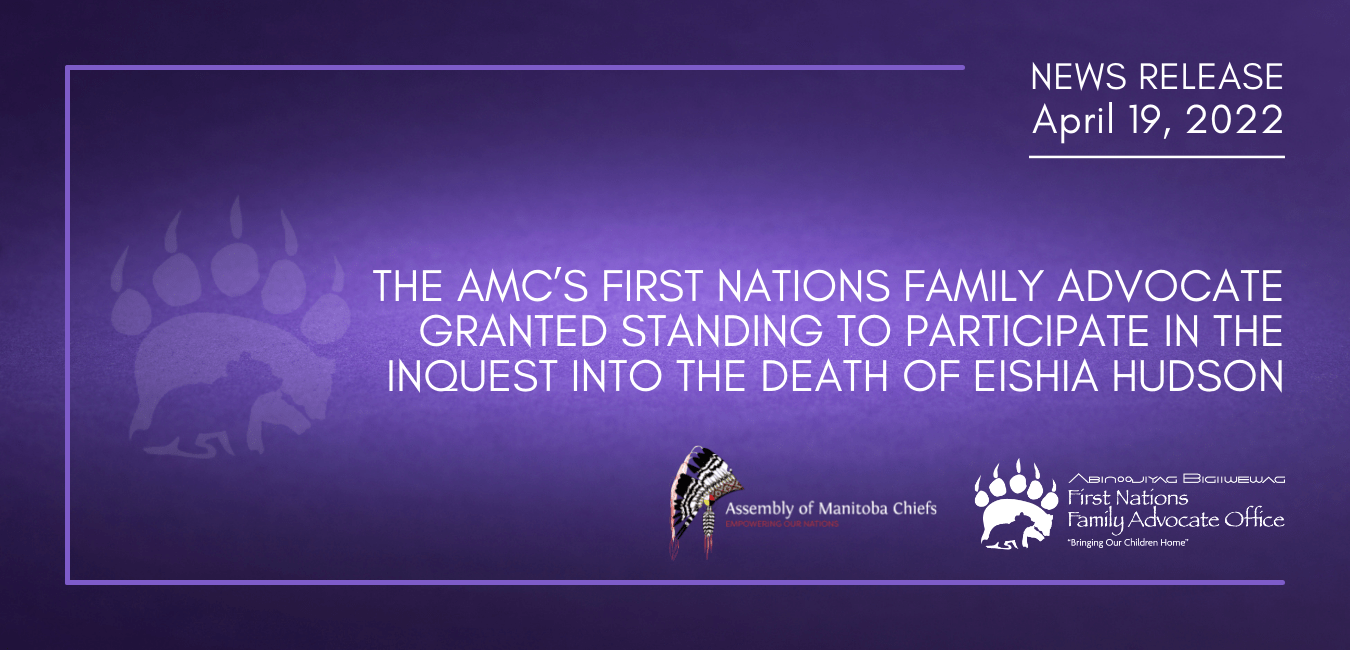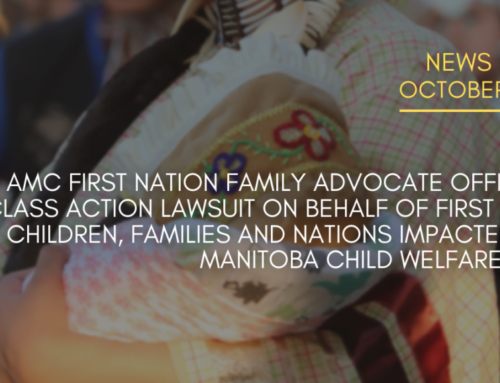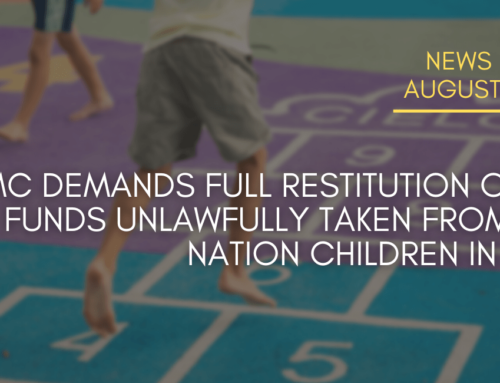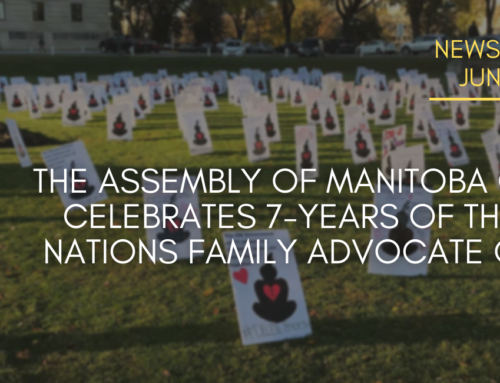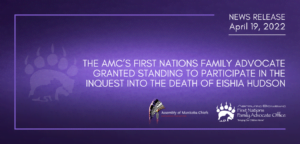 Treaty One Territory, Manitoba – Today, Chief Judge Margaret Wiebe of the Manitoba Provincial Court granted the Assembly of Manitoba Chiefs’ First Nations Family Advocates Office (FNFAO) standing to participate in the Provincial Inquest into the Death of Eishia Hudson.
Treaty One Territory, Manitoba – Today, Chief Judge Margaret Wiebe of the Manitoba Provincial Court granted the Assembly of Manitoba Chiefs’ First Nations Family Advocates Office (FNFAO) standing to participate in the Provincial Inquest into the Death of Eishia Hudson.
“First, I want to extend my deepest condolence to the Hudson family for the lost of their loved one. I am hopeful that this Inquest will be an opportunity for the family to receive justice and closure as they share their experience of this tragedy,” stated Acting Grand Chief Cornell McLean.
Four out of eight parties including Eishia Hudson’s Family, Winnipeg Police Services, the Manitoba Advocate for Children and Youth and the FNFAO were granted standing to participate in the Provincial Inquest. In her decision, Chief Judge Wiebe commented on FNFAO’s knowledge of the experiences of Indigenous youth and ability to educate the court and help inform recommendations.
“It is imperative that we bring the perspective and expertise of First Nations voices into these legal processes. When exploring the factors that contributed to Eishia’s death, it is impossible to ignore Eishia’s identity as a First Nation youth, and how that identity may have flagged Eishia for specific treatment by system actors. We know that First Nations people are more likely to be involved in police encounters in Canada, including police shootings. First Nations youth are also 24 times more likely to be involved in the child welfare and youth criminal justice systems compared to other Manitoba youth, and they represent 80% of the youth admitted to Manitoba’s correctional services,” stated Acting Grand Chief McLean.
On April 8, 2020, Eishia Hudson was shot and killed by a Winnipeg Police Service (WPS) officer at the age of 16, she became one of three Indigenous people who were killed by a WPS officer in the span of 10 days in the spring of 2020.
“The death of Eishia Hudson is a reminder of the vulnerability of First Nations children and youth that are interacting with multiple institutions. Eishia’s life was taken in a short period of time from the people who are to serve and protect her. By bringing the voices of First Nations youth into the inquest process, we are able to share their truths, from their perspective and from their understandings,” stated Cora Morgan.
“Eishia’s death is a tragic reminder of how colonial systems produce unacceptable outcomes for First Nations youth. The FNFAO is uniquely situated to serve the voice of First Nations youth for the Inquest and hopes that this process will address some of the systemic issues faced by First Nations youth when encountering these systems,” concluded Acting Grand Chief McLean.


